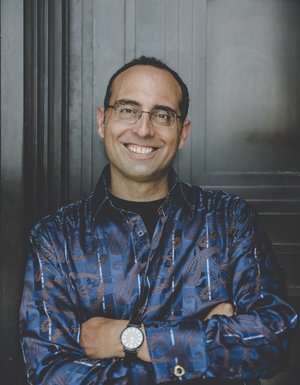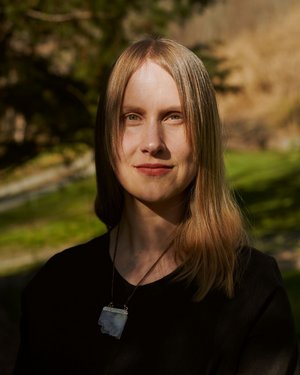Erasure
Poetry
Project
by Mahshid Mayar, PhD

In winter 2024, Mahshid Mayar and Luca von Kirschbaum met with the writer, translator, essayist, and poet Philip Metres for a conversation about erasure poetry. The first episode in an interview series hosted by erasurepoetryproject.com, the online conversation focused mainly on Metres’s work as a poet, his views on crafting “erasure poetry,” and erasure as performance.
An award-winning poet, translator, and teacher, Philip Metres is the author of numerous books, including Fugitive/Refuge (2024), Shrapnel Maps (2020), and Sand Opera (2015).

For the second episode of Sounds of Erasure, Mahshid Mayar and Luca von Kirschbaum met with the writer, translator, and poet Niina Pollari. In this online exchange that took place in the winter of 2024, Niina Pollari reflected on how she arrived at the idea for her “N-400 Form” erasure poem, the ways the poem has found a life of its own since it came out in 2017, and how it engages with the urgencies of the present.
A poet and a translator, Niina Pollari is the author of the poetry collections Path of Totality (2022), and Dead Horse (2015). She has also co-authored the split chapbook Total Mood Killer, which came out in 2017.

For the third episode of Sounds of Erasure, Mahshid Mayar and Michael Fuchs met the poet and artist Mai Der Vang. In this online exchange that took place in the late summer of 2025, Mai Der Vang reflected on how forgotten histories have been part of Hmong culture, how the Hmong people share these disappearances with other marginalized people around the world, how the oral storytelling of the Hmong people influence her work, and how erasure arts may be particularly important in our day and age.
Mai Der Vang is the author of the poetry collections Afterland (2017), Yellow Rain (2022), and Primordial (2025) and the co-editor of How Do I Begin? A Hmong American Literary Anthology (2011).